As with many complex things that surround us and at the same time are part of us, it is difficult to divide predispositions into groups, and definitely say something about them. Nevertheless, we like to put everything on the shelves. Let’s do it!
Our vulnerabilities to addiction can be influenced by a variety of factors, including genetics, environment, individual psychological characteristics, provoked by the drugs themselves, and more.
The mainstream scientific view of the factors that increase the risks of addiction is based on the Three-factor model. It was simply and clearly presented by the authors of a very important scientific work:
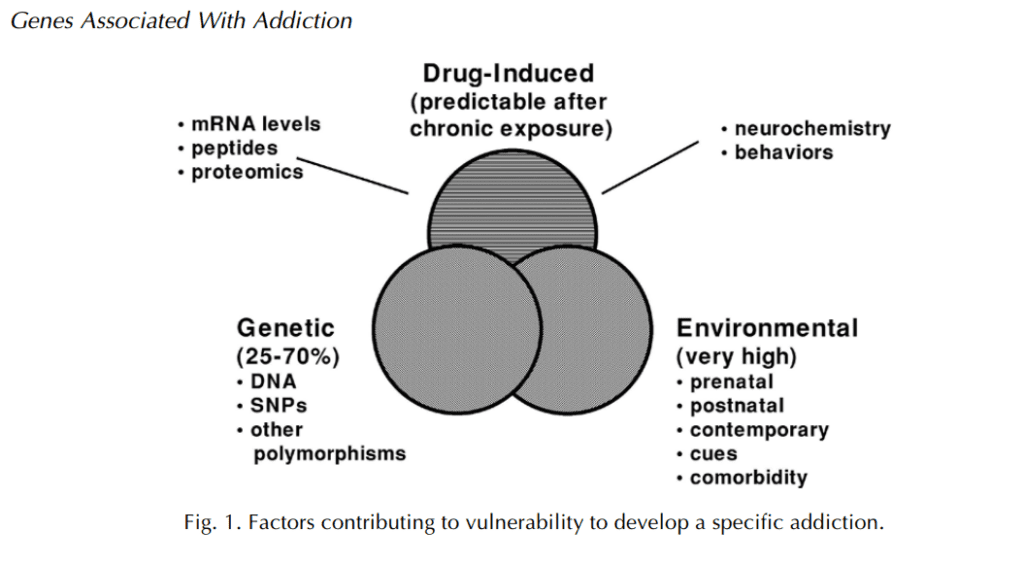
I will take this model as a basis, but I will take the liberty to add something from myself.
Heredity
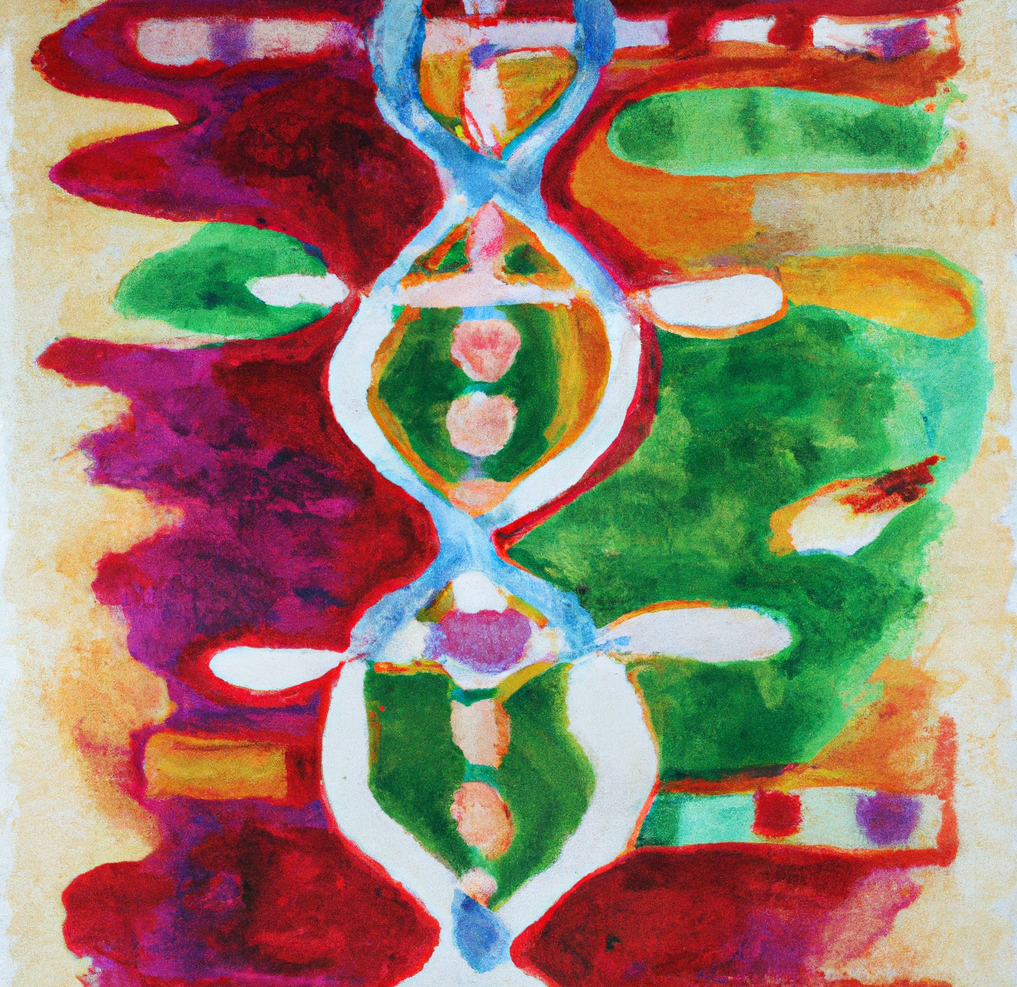
There is evidence to suggest that certain genetic factors may make some people more susceptible to addiction than others. For example, certain variations in the genes that control the brain’s reward system and stress response may increase a person’s risk of developing an addiction.
Additionally, some studies have found that people with a family history of addiction are more likely to develop an addiction themselves. But here we enter on very shaky ground, where researchers themselves make many reservations, and causal factors are intertwined with each other.
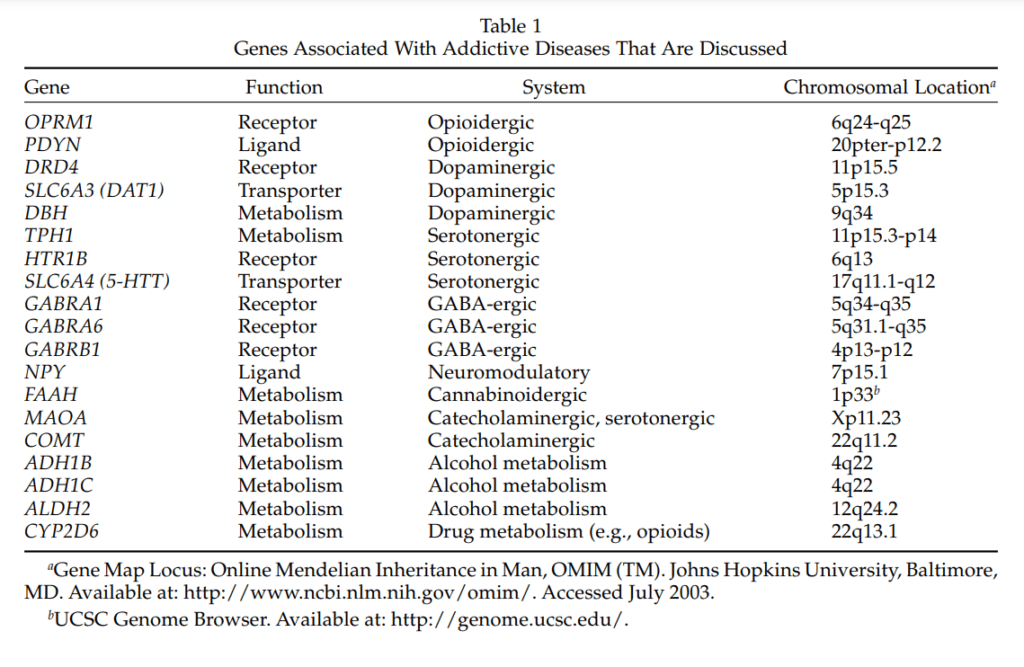
Since a person’s susceptibility to any substance at a basic level depends on the work of his biochemical mechanisms (enzymes, receptors, transporters), and the latter are encoded by genes in our DNA, it logically suggests that changes in specific genes can change the work, for example, Monoamine Oxidase A or Serotonin 5-HT1B Receptor or Dopamine Transporter, because of which a particular person will change at the neurochemical level the response to the intake of the substance.
Ah, it would be so great to find the addiction gene. This would mean that we would be able to cope with this disorder much more effectively. But the problem is those genetic abnormalities only increase the risks, but they cannot be fully responsible for the formation of addiction. And a person without the smallest deviations in the gene encoding some kind of enzyme can also fall into the clutches of the beast of addiction. Largely due to the fact that this person is surrounded.
Milieu

Environmental factors also play a role in a person’s vulnerability to addiction. For example, people who grow up in environments where drug use is common may be more likely to develop an addiction later in life, as they may be exposed to drugs at a young age and may not have the necessary coping skills to resist the temptation to use them. Additionally, people who live in areas with high levels of poverty or crime may be more likely to develop an addiction, as they may turn to drugs or alcohol as a means of coping with the stress and hardships of their environment.
It is also important not only the state of the environment in which a person grows or lives for a long time. But also the one which he developed while in the womb. And more than that – the one in which he was conceived.
But the safe initial environment can also change. A person’s life can include financial problems, overload at work, family troubles – in a word, stress. This scoundrel will reduce the influence of the prefrontal cortex and make human behavior much more short-sighted. Over a long period of time, a stressful environment can push a person to addiction.
But I would not remove part of the responsibility from the personality itself.
Persona

Individual psychological characteristics can also influence a person’s vulnerability to addiction. For example, people who have mental health conditions such as depression or anxiety may be more likely to develop an addiction, as they may use drugs or alcohol as a means of self-medicating their symptoms. Here we see the synthesis of genetic and environmental factors in fact
Additionally, people who have low self-esteem or who are easily influenced by peer pressure may also be more likely to develop an addiction, as they may be more likely to engage in risky behaviors, including drug use. Finally, people who have difficulty coping with stress or who have a lack of impulse control may also be more vulnerable to addiction.
We can say that all these states are also determined by genes (genes, genes everywhere), and this will be true to some extent. Nevertheless, the indirect influence of genes in my opinion should not be an excuse for dependent behavior at levels when a person is capable of analyzing their actions and their consequences. In these cases, when people can consciously control themselves and work on themselves, but choose an easier path, the role of personality as a derivative of our consciousness reveals itself to the fullest.
And more

I will touch on several interesting groups of factors that are particular or combined cases from what was mentioned above.
Repeated exposure to drugs or alcohol can play a significant role in the formation of addiction. This behavioral vulnerability needs to be highlighted, because it can form an addiction by itself, without all of the above factors. Conversely, if a person has the maximum set of vulnerabilities, but there is no repeated exposure, the risks of addiction for they will be minimal.
Another obvious factor about which it is impossible not to say. Adolescence can play a particularly important role in the formation of addiction. The teenage years are a critical period of development when the brain is still maturing and forming the connections that will support lifelong learning and decision-making. During this time, the brain’s reward system is particularly sensitive to the effects of drugs and alcohol, and young people who use these substances may be more likely to develop an addiction than adults who use them. Additionally, teenagers may be more likely to engage in other risky behaviors, therefore, they may be at risk
And finally the most unusual. Epigenetic factors, which are chemical modifications to DNA that can affect gene expression without changing the underlying genetic code, may also play a role in the formation of addiction. That is, unlike the genetic factors mentioned above, a situation may arise. when the genes themselves do not have an anomaly, but the environment and additional exogenous agents can change the expression of molecules that are encoded by these normal genes.
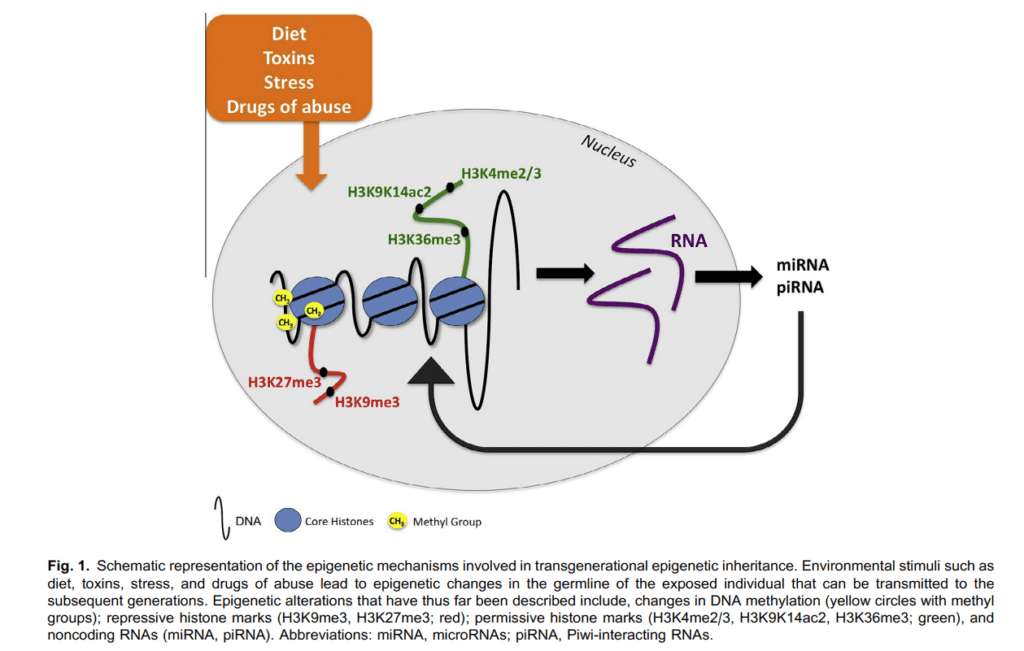
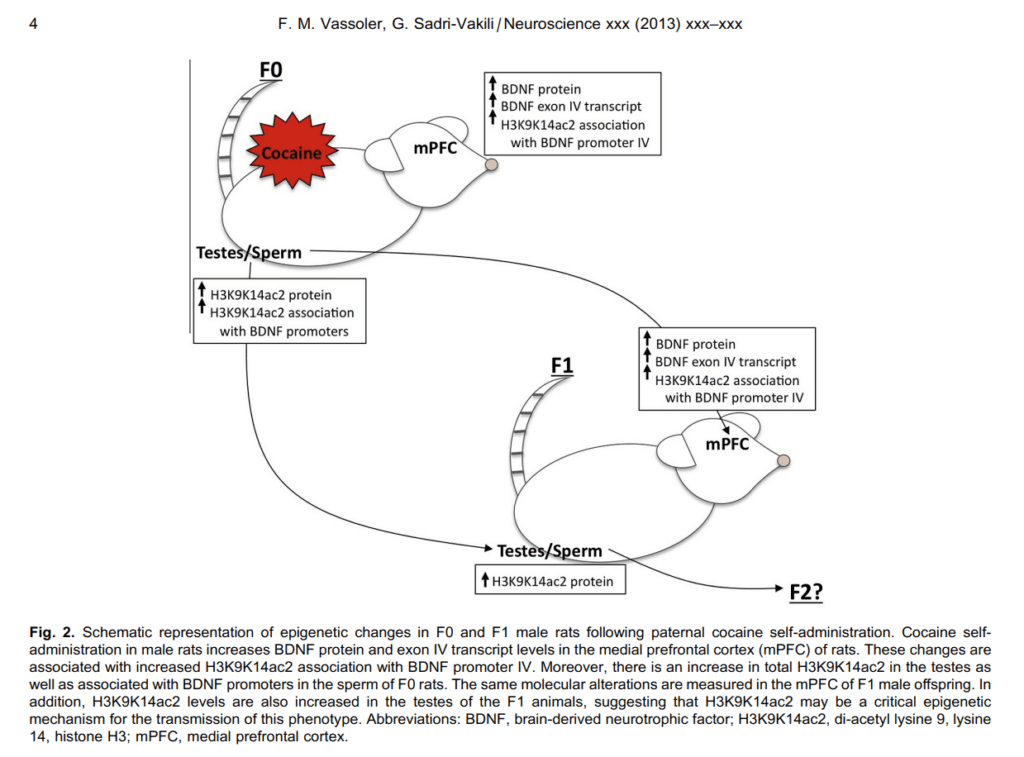
G.Sadri-Vakili. Neuroscience Volume 264, 4 April 2014
Today, with some degree of confidence, we can distinguish three main agents of influence in the epigenetic aspect of predisposition to addiction – these are toxins, substances themselves, stress, and nutrition. Buy the role of epigenetics in addiction is still not well understood, and more research is needed in this area. As well as in general for understanding and preventing addiction.

That’s all for today.
If you think that something needs to be added or corrected here, write to me. I am always glad to dialogue.
I hope the article was helpful. Please support the development of this blog:
- Subscribe to my social networks.
- Share a link to this article with your friends.
- Tell about the blog on thematic resources or in chats.
Thank you for your time and attention 🧬




